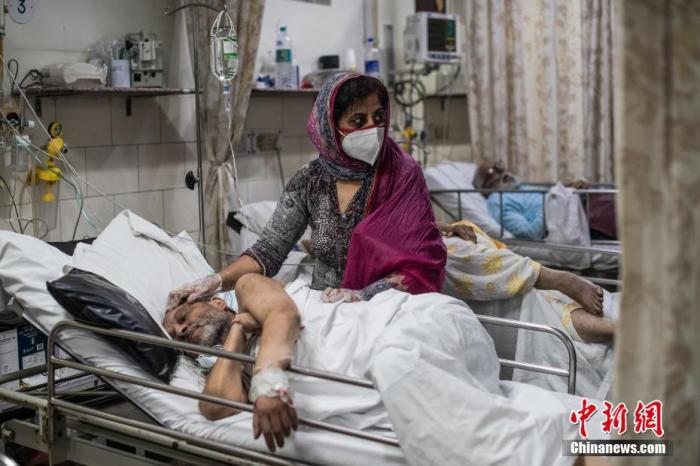China News Service, June 17th. As of now, the delta strain (the B.1.617.2 mutant new crown virus first reported by India) has spread to 74 countries around the world.
Although many countries have launched large-scale COVID-19 vaccination, the medical community and governments of various countries are still concerned about this strain.
Compared with other strains, how infectious is the Delta strain?
What changes have occurred in the symptoms of infection?
Is the new crown vaccine still effective for it?
In response, the British Broadcasting Corporation (BBC) on the 16th issued a document summarizing several new developments in this strain.
On March 10, local time, in London, England, pedestrians walked past the vaccination center of Westminster Abbey.
How infectious is the delta strain
?
Britain unblocks "sudden brakes"
According to reports, in accordance with the "Unblocking Trilogy" originally formulated by the British government, June 21 will be the third step of full unblocking day.
However, the recent increase in the number of infections has forced the British government to postpone the unblocking date in England for four weeks.
The reason for the delayed unblocking is the Delta strain.
The current follow-up study in the United Kingdom found that the delta strain has increased the infection rate of the previous virus mutation by about 60%, and the probability that the infected person must be hospitalized has also doubled.
Reuters also reported that a large-scale epidemiological study led by Imperial College in London showed that since May, the large-scale spread of the delta strain has increased the infection rate in England by 50%.
Riley, professor of infectious disease dynamics at Imperial College London, said: "The prevalence driven by younger age groups is increasing exponentially... and it seems to double every 11 days."
In addition, according to data released by the British health department, among all the new crown infections, about nine adults are infected with the delta strain; and among the deaths due to the new crown, more than half are due to the delta strain.
May 6, 2021 local time, New Delhi, India, a patient with new coronary pneumonia in the ICU ward of the Holy Family Hospital.
Image source: Visual China
Spread to 74 countries around the world
Triggered a counterattack against the epidemic in many places
The BBC pointed out that the Delta strain has been found in 74 countries and continues to spread rapidly.
Some governments and health departments around the world are worried that this mutated virus may become the strain most affecting the epidemic.
So far, the United States, Africa, Scandinavian countries in Northern Europe, and Pacific Rim countries have confirmed that the Delta strain caused the epidemic to counterattack.
Although various countries have begun to share and collect information on this strain, it is worrying that in developing countries where the monitoring system is not well-developed, the spread of this variant cannot be reported and grasped in time, which has a wider impact. Area.
On May 5, 2021 local time, the Adani Vidya Mandir School in the suburb of Ahmedabad, Gujarat, India, has been converted into a new crown care center, and the administrator is arranging beds.
Symptoms of infection or changes
Loss of smell is no longer one of the typical symptoms?
Professor Tim Spector, who is responsible for research on the symptoms of the new coronavirus, said that for young people, infection with the Delta strain may feel "more like a bad cold."
However, although young people may feel that they do not have any extremely uncomfortable symptoms, they may be infected with the virus, which poses danger to others.
Therefore, anyone who thinks they might be infected should be tested.
Prior to this, the British National Medical Service NHS has been warning the public that the typical symptoms of new coronavirus infection to be aware of are: cough, fever, loss of smell or taste.
But Professor Specter said that according to the data collected by his research team, these typical symptoms are now less common.
The change in symptoms seems to be related to the increase in the number of people infected with the delta strain.
According to reports, Professor Specter said that fever is still one of the common symptoms of COVID-19, but loss of smell is no longer one of the top ten symptoms.
Data map: The picture shows an 80-year-old man in France working on the new crown vaccination.
Is the new crown vaccine still effective against the Delta strain?
What are the consequences of infection that can be prevented?
The latest analysis by the Public Health Service of England (PHE) shows that two doses of the new crown vaccine can effectively prevent severe illness or hospitalization of infected persons caused by the Delta strain.
The analysis showed that Pfizer vaccine prevented 96% of hospitalization after two doses.
The AstraZeneca vaccine prevented 92% of hospitalizations after two doses.
These data are almost the same as the preventive effect of the vaccine on the Alpha strain (the B.1.1.7 mutant new coronavirus first reported in the UK).
However, according to statistics collected by the Scottish Public Health Agency and published in the authoritative medical journal The Lancet, Pfizer vaccine has a protection rate of 92% against the alpha strain at least two weeks after the second dose of vaccination. The protection rate of the strain drops to 79%; the protection rate of the AstraZeneca vaccine against the alpha strain is 73%, and the protection rate against the delta strain is 60%.
The report pointed out that, in general, the new crown vaccine is the most effective in preventing death, the most serious consequence of infection, but it is even less effective in preventing asymptomatic infections.

